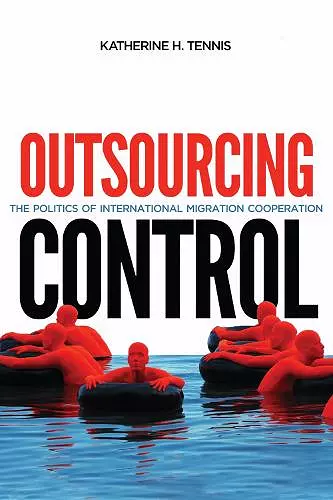Outsourcing Control
The Politics of International Migration Cooperation
Format:Hardback
Publisher:McGill-Queen's University Press
Published:17th Dec '20
Currently unavailable, and unfortunately no date known when it will be back

When the United States, Europe, and Australia ask their neighbours to help them control irregular migration, how do those countries respond?
The first comprehensive study to trace the emergence of extraterritorial migration control agreements across nations, Outsourcing Control reveals the international and domestic pressures behind the complex, brutal, and often deadly situation facing migrants today.
When the European Union signed an agreement with Turkey in 2016 to end irregular migration from Syria using extraterritorial measures, the media framed it as a radical new low in migrant protection. Similarly, when then presidential candidate Donald Trump called on Mexico to "pay for the wall," critics argued it was an outlandish departure from established norms. Extraterritorial migration control arrangements of this type have become more visible in recent years, but they are not new. Katherine Tennis traces the emergence of these agreements in the Americas, Europe, and Southeast Asia. Grounded in case studies of negotiations between the United States and Haiti and Mexico, Italy's negotiations with Tunisia and Libya, and Spain's negotiations with Senegal, Outsourcing Control argues that while some countries - sharing an interest in ensuring orderly migration or recognizing the opportunity for kickbacks - have been happy to cooperate, others have objected, claiming wealthy destination states are exploiting them to do their dirty work. Tennis shows that these different responses depend on how the government in the partner country secures its power. Autocracies and strong democracies tend to cooperate, though for different reasons and in different ways. The most unpredictable partners are fragile democracies, who are prone to nationalism and populist backlash. The first comprehensive study to trace the emergence of extraterritorial migration control agreements across nations, Outsourcing Control reveals the international and domestic pressures behind the complex, brutal, and often deadly situation facing migrants to"Outsourcing Control advances our scholarly understanding of bilateral international negotiations concerning migration management and will be useful to scholars, policymakers and students for the foreseeable future. Exceedingly well researched, deeply engaged with the relevant literature, methodologically rigorous, and persuasive, this is certainly a noteworthy contribution." Gregory White, Smith College and author of Climate Change and Migration: Security and Borders in a Warming World
ISBN: 9780228004073
Dimensions: unknown
Weight: unknown
344 pages